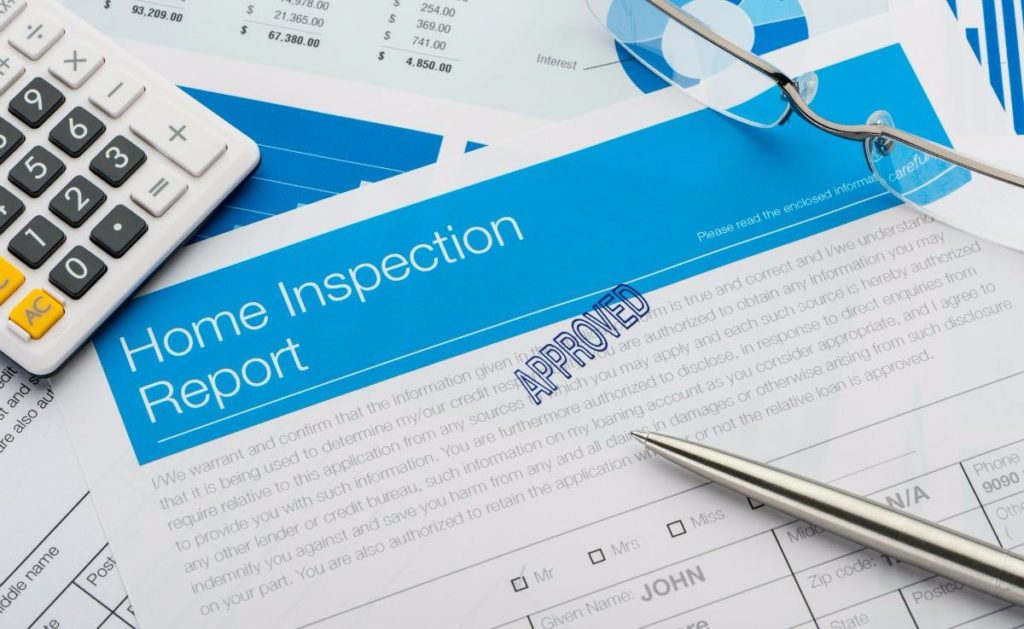Home inspection checklist for buyers
When it comes to buying a home, what you see isn’t exactly what you get. You’ll see colorful flowers, freshly painted walls, granite countertops, gleaming hardwood floors and other superficial touches. What you can’t see is the foundation cracks, ancient plumbing, dangerous wiring, broken appliances or other defects that might be revealed when you hire a home inspector.
What is a home inspection?
A home inspection is an opportunity for you to hire an expert to walk through the home and prepare a report that outlines the home’s major components, their current condition, what needs immediate attention and what will require maintenance after you move in.
As a buyer, your home inspection report offers a deeper understanding of whether the home has been well-maintained or needs major repairs. If you’re not satisfied with the home’s current condition, you can request the seller address the repairs or give you a credit toward the cost of repairs at closing. A report can also help you prioritize repairs and improvements after you buy the home, and plan for upgrades.
How to find an inspector
Licensing requirements for home inspectors vary from state to state. In Arizona, Nevada, and Texas, inspectors must demonstrate experience, complete training, and pass an examination to become licensed. Georgia does not require that inspectors be licensed. The American Society of Home Inspectors (ASHI), a trade organization, offers an interactive map that includes specific home inspection license requirements in these and other states
Hiring a home inspector
Before you hire an inspector, ask for a sample report so you can see what the inspector includes and evaluate their comments. Some reports run 100 pages or longer and include photographs. Other reports are mainly checkboxes with brief notes.

What to Expect From a Home Inspection
A home inspection helps you make a more informed decision about the home you’re considering buying. A home inspector can identify potential issues, plus give you a better idea of the ongoing maintenance the property will require.
What is a home inspection?
A home inspection is a visual assessment of a house’s physical structure and mechanical systems, including the roof, ceilings, walls, floors, windows and doors.
The inspector will check that major appliances are functional, scrutinize the heating and air-conditioning system, examine the plumbing and electrical systems and may even poke around in the attic and basement.
When does the home inspection happen?
The home inspection happens after the seller has accepted your offer but before the purchase is complete. To provide enough time for additional inspections or for negotiations with the seller, you’ll want to schedule a home inspection as soon as possible once you’re under contract. You should allow at least seven to 10 days in the homebuying process to take care of the inspection.
Hiring a home inspector
As the buyer, it’s on you to hire the home inspector. Even if the seller offers to share their home inspection report or claims the house is pre-inspected, you’ll want to arrange your own inspection so you can vet the inspector yourself. Home inspectors aren’t federally regulated, and they’re not even licensed in all states.

Tips to Hire a Good Home Inspector!
As soon as you choose the budget, location and also kind of home you want to buy you require to hire a residence examiner who will certainly aid you acquire a residence that is up to the mark. There are lots of things that need to be thought about while buying a residence to make sure that you don’t have to spend money after buying your house on fixings as well as other expenses. A Qualified Home Assessor will undergo an extensive home assessment as well as supply you with a thorough report of the searchings for both verbally and also in a created style.
Full-time inspector
First off ask your residence examiner if he is a full-time assessor or a part-time examiner. It is very important to know that because this will help you to recognize how seriously he occupies his occupation. For a Top Quality House Assessment, you need a full-time home assessor
Warranty for the job done
Another thing that you need to know and ask your assessor is if he offers a warranty for the evaluation as well as the report that he sends. This will help you to recognize just how truthfully the work is done by the examiner and you can feel confident that the assessor is good and confident about his work.
Sample inspection report
To locate a good assessor you require to see the example records prepared by the examiner for other homes that he should have inspected. A good report contains twenty to fifty pages with color photographs of the issues highlighted. If an inspector is revealing you a report of less than 10 web pages after that you should take that as an indicator that the assessor is not certified.
Costs
You have to also understand the charges that the examiner estimates for Residence Inspections Solutions. Occasionally there are significant issues estimated by the inspector that needs to be taken care of on a concern basis. When the vendors make the required modifications and make your home according to the called for criteria you can ask your examiner to visit again and examine. Yet it is very important for you to understand whether he will certainly bill for review or not as some inspectors charge for re-inspection and some do not.

Tips to Stop Home Inspections From Derailing a Deal
Prior to my current management position as head of our principal broker group overseeing seven full-time brokers, I was an active principal broker. One of the many documents I signed as the broker in my office was the earnest money/escrow money release form. Many times, the reason stated on the form for terminating the contract was “property inspection issues.” When I signed the release form due to an inspection release I always wondered if the transaction could have been saved one way or another. Did the buyer know what to expect going into the inspection? Did they remain objective and open to remedies to items in the inspection report? Did the agent influence their decision?
I have personally purchased and sold fifteen homes since the 1980s. When my wife and I purchased our fourth home, our agent provided us with some excellent counsel on home inspections. He explained the inspection was designed to evaluate the current performance of the home’s systems and their features, not to evaluate cosmetic defects or design issues
Traditional home inspections have limitations. Even though many inspectors are good at their jobs, they are usually not properly trained or have the experience or expertise to provide a true professional opinion on the systems and structure of a property. A typical home inspection is just one person’s review of the home’s systems and their function
The inspector will always find something wrong with the house. I have never had a home inspector not find some issue in a home. All inspectors find something. However, what they find may or may not be a problem. The buyer will need to decide whether or not to investigate further to see if a real issue exists
The actual inspection report can be overwhelming. Most inspectors use a pre-written template from an inspection computer software program to generate an inspection report. Usually containing several pages of information, most reports include the inspector’s findings plus tips on interior and exterior home maintenance and other topics related to home ownership. Prepare the client for what they will receive in their email, so they won’t be alarmed by all that is written in the inspector’s report.

Getting a Home Inspection
Inspecting the physical condition of a house is an important part of the home-buying process and should be included in your purchase contract as a condition of closing the sale. One or more professional inspectors should look for defects or malfunctions in the building’s structure, systems, and physical components, such as the roof, plumbing, electrical and heating/cooling systems, floor surfaces and paint, windows and doors, and foundation, and detect pest infestations or dry rot and similar damage. The inspector should also examine the land around the house for issues concerning grading, drainage, retaining walls, and plants affecting the house.
Ask for disclosures before you get an inspection. In some states, such as California, sellers are required to disclose considerable information about the condition of the house itself and potential hazards to the property. (See Required Disclosures When Selling U.S. Real Estate.) But this is just the beginning: Not all sellers know about problems with the house or honestly disclose them. (Sometimes they’ve lived with a problem for so long that they literally forget it’s there!) Nevertheless, the disclosures are useful to hand to your inspector for follow-up on known issues.
When to Have the Property Inspected
Most buyers get professional inspections only after they’re in contract to buy the property. The deal is commonly made contingent on the buyers’ approving the results of one or more inspections. The buyer arranges and schedules the inspections.
Hire a Professional Inspector
Hire a general contractor or home inspector to inspect all major house systems, from top to bottom, including the roof, plumbing, electrical and heating systems, foundation, and drainage
Get a Pest Report
In addition to the general inspector, it’s wise to hire a licensed structural pest control inspector, who will create a special pest report on the property (unless the seller has already commissioned one — pest inspectors, unlike general inspectors, traditionally accept work on properties they’ve inspected, so they have every interest in finding problems). The pest inspector will look for infestation by wood-boring insects such as termites and flying beetles, as well as evidence of dry rot and other fungal conditions.